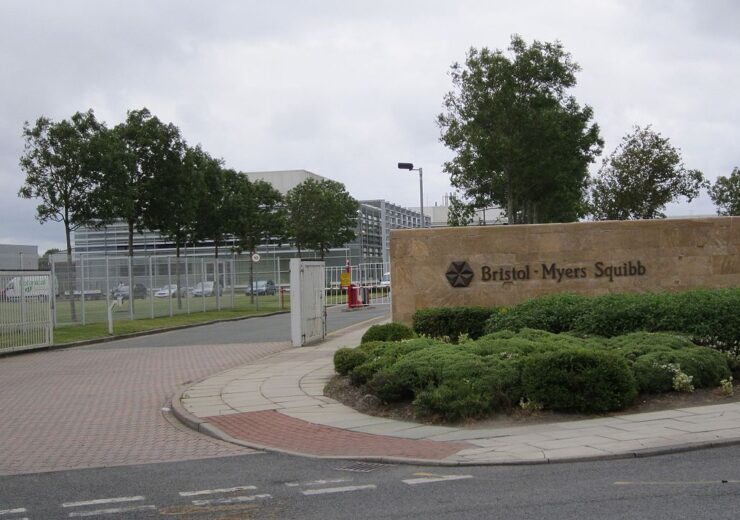ORM-6151 is an anti-CD33 antibody-enabled GSPT1 degrader intended to treat acute myeloid leukaemia (AML) and other CD33-expressing malignancies, and has received US FDA approval for Phase 1 clinical trials in patients with AML and other syndromes

Bristol-Myers Squibb site at Reeds Lane, England. (Credit: Rept0n1x/Wikipedia)
Bristol Myers Squibb (BMS) has acquired South Korea-based clinical-stage biotechnology company Orum Therapeutics’ ORM-6151 programme for up to $180m.
ORM-6151 is an anti-CD33 antibody-enabled GSPT1 degrader intended for the treatment of acute myeloid leukaemia (AML) and other CD33-expressing malignancies.
The programme received the US FDA approval for Phase 1 clinical trials for the treatment of patients with AML or high-risk myelodysplastic syndromes.
Under the terms of the agreement, Bristol Myers Squibb acquired Orum’s ORM-6151 program for an upfront payment of $100m and the remaining consideration as milestone payments.
Orum Therapeutics CEO Sung Joo Lee said: “We believe this agreement with Bristol Myers Squibb, a global leader in cancer with a strong legacy in protein degradation, validates Orum’s unique Dual-Precision Targeted Protein Degradation approach.
“We are excited that Bristol Myers Squibb has acquired our ORM-6151 program with proprietary GSPT1 degraders, first-in-class targeted protein degraders with the potential to make an impact for patients with cancer.”
Orum develops cell-specific, dual-precision targeted protein degraders (TPD²) and targeted protein stabilisers (TPS²) with the precision of antibody targeting to improve cancer treatment.
Its lead therapeutic candidate from the TPD² GSPT1 platform, ORM-5029, is in clinical development for the treatment of HER2-expressing solid tumours.
The GSPT1 platform leverages the biotechnology company’s unique Dual-Precision Targeted Protein Degradation (TPD²) approach to generate advanced TPDs for cancer treatment.
Orum has developed new molecular glue degrader payloads to specifically degrade an intracellular target protein within cancer cells, through the E3 ubiquitin ligase pathway.
The payloads, conjugated to antibodies, will be delivered to cancer cells to degrade the intracellular target protein GSPT1 and cause tumour cell death.
Perella Weinberg Partners served as the financial advisor and Sterne Kessler Goldstein & Fox, and Skadden, Arps, Slate, Meagher & Flom as legal advisor to Orum on the transaction.
Last month, BMS agreed to acquire all the shares of Mirati Therapeutics, a US-based commercial-stage oncology company.
